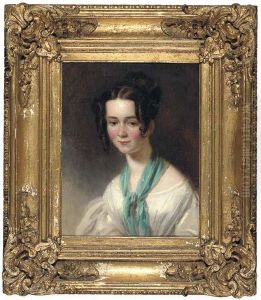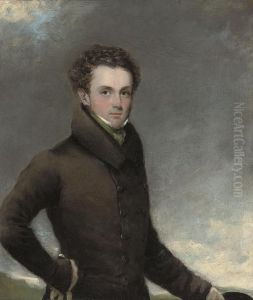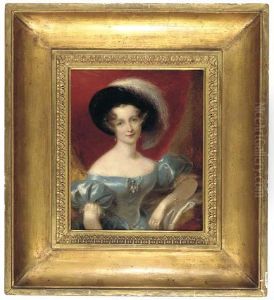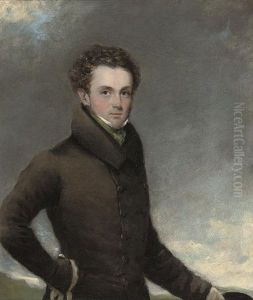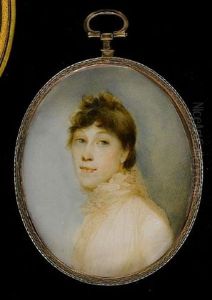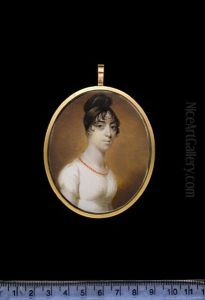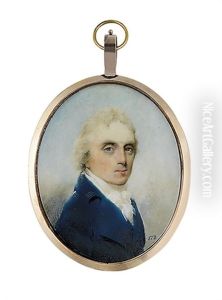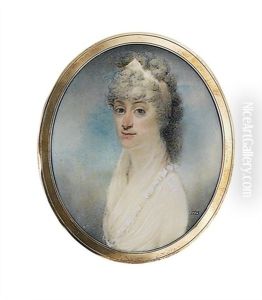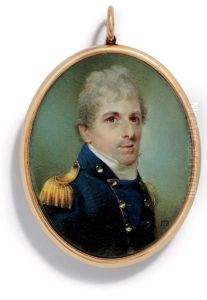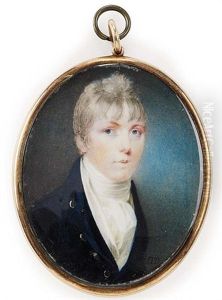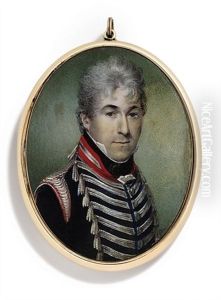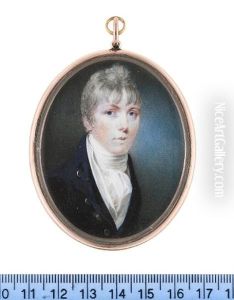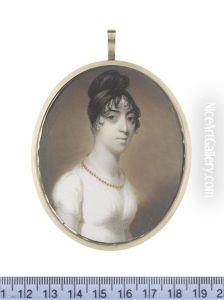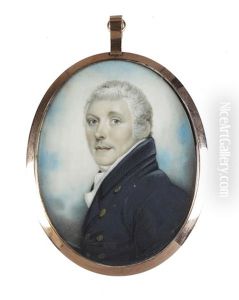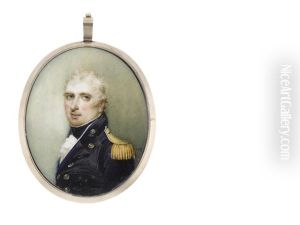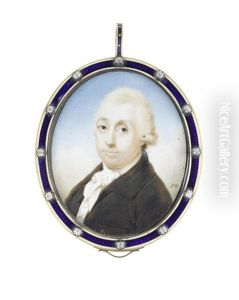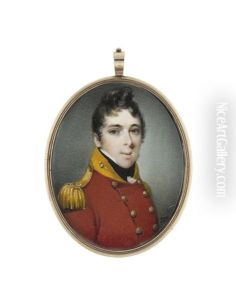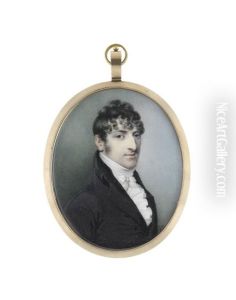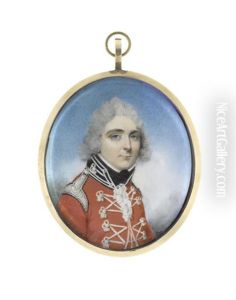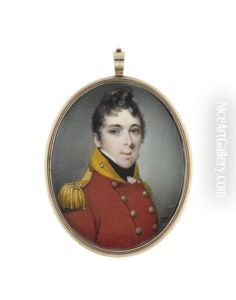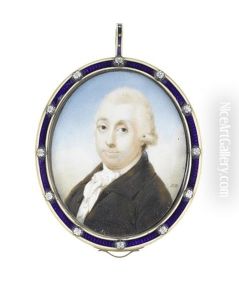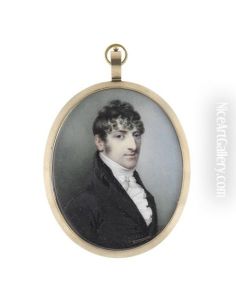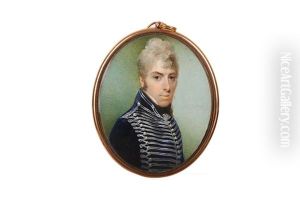John Thomas Barber Beaumont Paintings
John Thomas Barber Beaumont was a British artist, philanthropist, and entrepreneur, known for his contributions to the fields of art, education, and social reform during the late 18th and early 19th centuries. Born in 1774, Beaumont was a man of diverse interests and talents, engaging in various pursuits throughout his life.
Initially, Beaumont made his mark as an artist, particularly in the realm of miniature painting and later in life-size portraiture. His artistic talents were recognized early on, and he was able to forge a career that saw his works exhibited at prestigious venues such as the Royal Academy in London. Beyond his artistic endeavors, Beaumont was deeply involved in the educational and philanthropic movements of his time. He was a fervent advocate for social reform, using his resources and influence to support causes aimed at improving the welfare of the less fortunate.
One of Beaumont's significant contributions was in the realm of education. He was instrumental in the establishment of schools and educational programs designed to provide quality education to children from underprivileged backgrounds. His vision was grounded in the belief that education was a key driver of social mobility and change.
In addition to his educational initiatives, Beaumont was a pioneer in the early cooperative movement in Britain. He actively participated in the establishment of cooperative societies, which aimed at providing affordable housing and improving living conditions for the working classes. His efforts in this area were part of a broader commitment to addressing the social and economic challenges of his time.
John Thomas Barber Beaumont's legacy is a testament to his multifaceted career and his enduring impact on British society. Through his art, philanthropy, and activism, he exemplified the ideals of enlightenment and progress that characterized the era. He passed away in 1841, leaving behind a rich legacy of contributions to the arts, education, and social reform.
